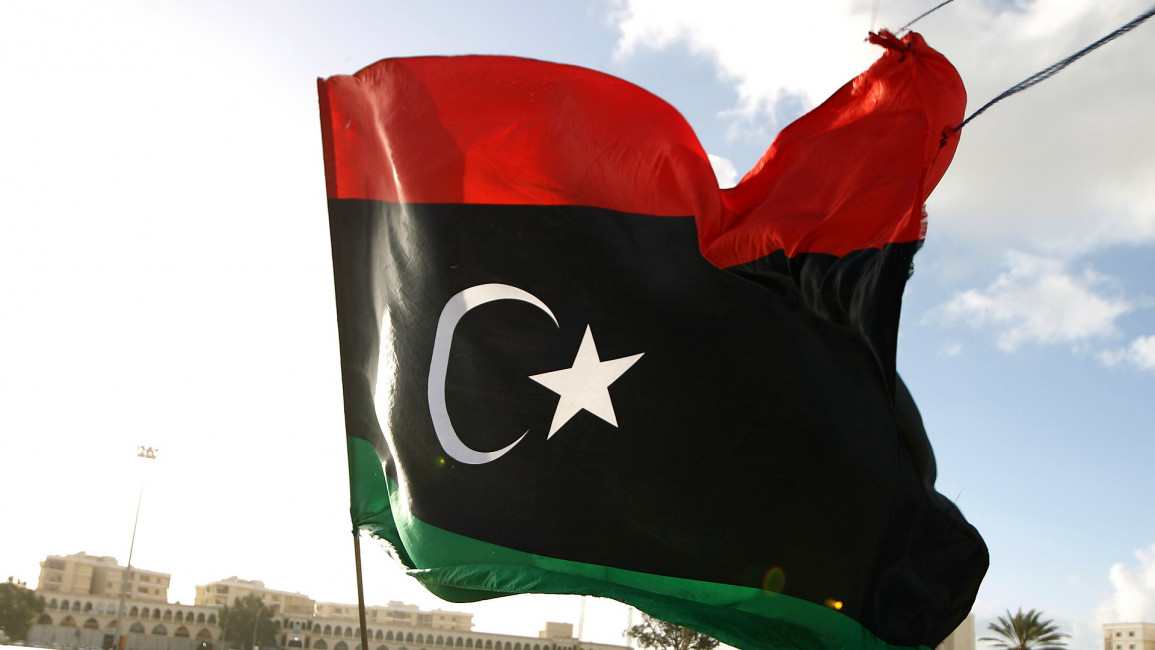Artillery fire hits power station in Libya's Benghazi
Artillery fire hits power station in Libya's Benghazi
Artillery fire hit a key power station in Libya's second city Benghazi on Saturday.
2 min read
Libya descended into chaos after the October 2011 ouster and killing of Gaddhafi [Getty]
Artillery fire hit a key power station in Libya's second city Benghazi on Saturday, which provides electricity to much of the country's east.
Mussa Suleimani, an engineer at the power station, said five of the six transformers at the facility were knocked out after it was struck on Friday evening and twice on Saturday.
He said that it was likely that power cuts which have plagued the eastern city, cradle of the 2011 uprising that toppled dictator Moammar Gaddhafi, would worsen across the region.
"It is the fifth time in two months that the power station... has been hit," said Suleimani.
As a result, he said, outages of up to eight hours were to be expected in the area between Benghazi and the town of Musaed some 500 kilometres (300 miles) farther east near the border with Egypt.
"Specialised foreign firms will be needed to repair the transformers that have been damaged, but that will be difficult because of the bad security situation," he added.
A security official blamed "terrorists" for the attack.
"Howitzers were used in the attacks," said Captain Adnan al-Baba, a spokesman for a Libyan anti-terrorism squad.
He said for such guns to hit with precision "someone on the inside must supply the terrorists" with specific coordinates otherwise "it is impossible to target the power station".
Shelling of the nearby Tawergha camp for displaced killed a woman and wounded nine other people including a child, said Fadia al-Barghathi of the al-Jalla hospital in Benghazi.
Pro-government forces have fought an array of armed factions, notably Islamists, for control of Libya's second city in the past 18 months.
Libya descended into chaos after the October 2011 ouster and killing of Gaddhafi, with two governments vying for power and armed groups battling over its vast energy resources.
Mussa Suleimani, an engineer at the power station, said five of the six transformers at the facility were knocked out after it was struck on Friday evening and twice on Saturday.
He said that it was likely that power cuts which have plagued the eastern city, cradle of the 2011 uprising that toppled dictator Moammar Gaddhafi, would worsen across the region.
"It is the fifth time in two months that the power station... has been hit," said Suleimani.
As a result, he said, outages of up to eight hours were to be expected in the area between Benghazi and the town of Musaed some 500 kilometres (300 miles) farther east near the border with Egypt.
"Specialised foreign firms will be needed to repair the transformers that have been damaged, but that will be difficult because of the bad security situation," he added.
A security official blamed "terrorists" for the attack.
"Howitzers were used in the attacks," said Captain Adnan al-Baba, a spokesman for a Libyan anti-terrorism squad.
He said for such guns to hit with precision "someone on the inside must supply the terrorists" with specific coordinates otherwise "it is impossible to target the power station".
Shelling of the nearby Tawergha camp for displaced killed a woman and wounded nine other people including a child, said Fadia al-Barghathi of the al-Jalla hospital in Benghazi.
Pro-government forces have fought an array of armed factions, notably Islamists, for control of Libya's second city in the past 18 months.
Libya descended into chaos after the October 2011 ouster and killing of Gaddhafi, with two governments vying for power and armed groups battling over its vast energy resources.


![President Pezeshkian has denounced Israel's attacks on Lebanon [Getty]](/sites/default/files/styles/image_684x385/public/2173482924.jpeg?h=a5f2f23a&itok=q3evVtko)



 Follow the Middle East's top stories in English at The New Arab on Google News
Follow the Middle East's top stories in English at The New Arab on Google News


